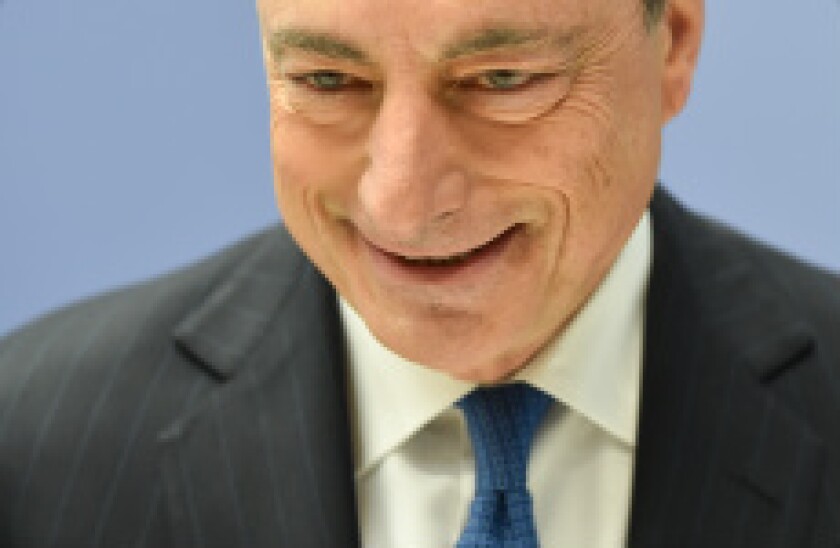At its meeting on April 21, the governing council is rumoured to be ready to green light plans to add European goods to its purchase lists, including sherry, port, olive oil, feta cheese and criadillas , in yet another attempt to reinvigorate the struggling European economy.
Insiders are calling the programme “Whatever it Tastes” and “Quantitative Eating”, although that is understood to be an unofficial designation. The ECB is also considering purchasing non-edible items such as Asterix et Obelix books and Kraftwerk albums.
“The board of governors is all over this. I’m in no doubt they are ready to act, and to eat,” said one source close to the ECB. “If they go ahead with it, it will send a clear signal that the ECB’s appetite for risk, and all kinds of other things, is far, far from sated. Benoit [Couré] is already planning to starve himself for three days ahead of the first day of purchases.”
The insider said the ECB’s members are “absolutely” committed to raising inflation to its 2% target, even if that means inflating themselves.
The idea is said to have originated with ECB president, Mario Draghi himself. “You’ve seen the pictures of him shopping?" the source said. “That was just a snack. He’d just had an entire sushi boat to himself at Tawaraya [a restaurant near the ECB].
“And even when he gorges, he just holds on to it. He says that’s been the ECB’s policy all along and he doesn’t plan to deviate from that, now. It’s amazing. I’d never be able to put all that away.”
‘Endless appetite’
The ECB president called the idea “a very interesting concept”, saying the term “may mean many different things”, before drifting off mid-sentence and beginning to openly salivate.
“It was then he realised: hey, we’ve got a huge arsenal,” the insider said. “Why not use it to boost European businesses directly, by just buying and eating everything they can send to Frankfurt?”
But analysts were worried that such a big buyer of sherry and other luxury comestibles may raise the prices of those goods out of the reach of ordinary consumers.
“Ordinary citizens are already unable to make any money on their savings, housing is becoming unaffordable in many areas, their pensions are running dry, and now they won’t even be able to buy olive oil,” lamented one analyst.
But the ECB insider said that this foray into “culinary policy” would boost income for many small and medium sized enterprises, something the ECB had been aiming to do for years by making it cheaper for very large corporations to borrow more.

